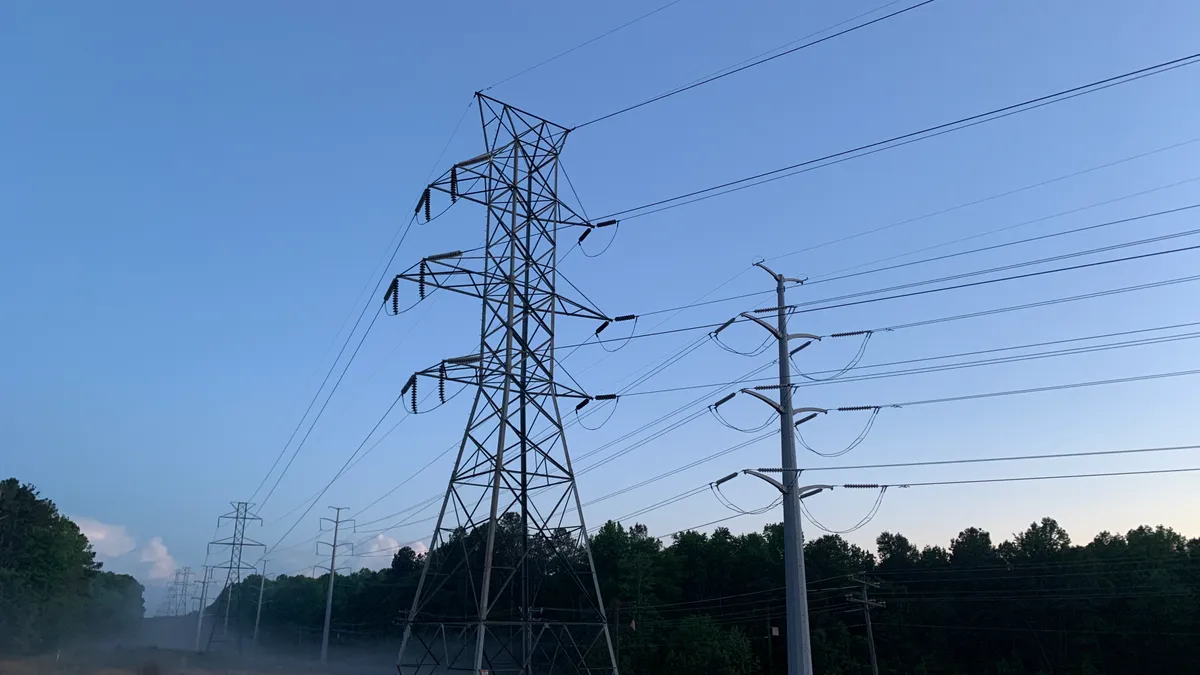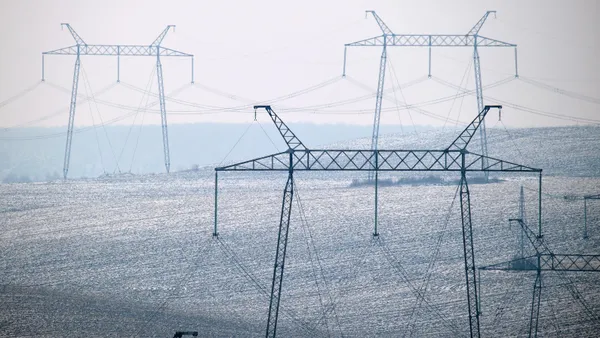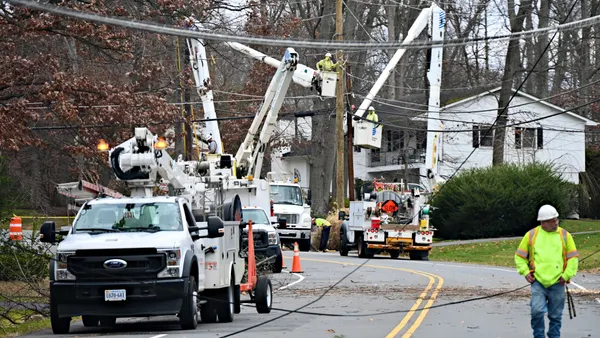Dive Brief:
-
A Maine jury ruled Thursday that Avangrid had the right to build a 145-mile transmission line when state voters in 2021 approved a ballot measure that interrupted construction of the New England Clean Energy Connect, NECEC, project.
-
The 9-0 decision in the Maine Business and Consumer Court in Portland turns aside the referendum and allows work to resume on the $1 billion project to deliver Canadian hydropower to the New England grid. Massachusetts ratepayers would be the primary beneficiaries and bear the costs.
- Backers of the project say the transmission line through western Maine will combat climate change by supplying up to 1,200 MW of hydropower, or enough electricity for about 1 million homes. Critics say it will damage woodlands along a portion of the route, but NECEC said the area has been logged for years.
Dive Insight:
“The jury’s unanimous verdict affirms the prior rulings of the Maine Supreme Judicial Court that the New England Clean Energy Connect project may lawfully proceed,” said Scott Mahoney, senior vice president and general counsel for Connecticut-based Avangrid.
The Natural Resources Council of Maine, an opponent of the project, said in an emailed statement it is disappointed and will remain “sharply focused on achieving a just and equitable clean energy future that works for all Mainers.”
The group said it’s pursuing “home-grown clean energy sources,” such as utility-scale solar, offshore wind and a wind project in Aroostook County.
A spokesperson for the Maine attorney general’s office said Thursday it will not comment. It represented the Maine Public Utilities Commission and Bureau of Parks and Lands in the lawsuit.
Big energy interests fought the transmission line. NextEra Energy Resources, which owns about 2,495 MW of generation in New England, joined Vistra and Calpine in helping finance the $100 million ballot fight, the most expensive in Maine history. Electricity from Hydro-Québec would increase power supplies in the ISO New England market, cutting into the generators’ bottom lines. The three companies did not immediately respond to requests for comment.
Maine’s Supreme Judicial Court ruled in August that Avangrid could proceed with the transmission line if it shows it engaged in “substantial” construction on the project before the referendum. Retroactively applying a new law to the project would violate Maine’s constitution if Avangrid had begun building the transmission line. The company had vested rights — an unconditional right, such as with a property interest, that cannot be taken away — in the transmission project, the court said.
The case was remanded to the lower court to decide if Avangrid meets the conditions for claiming the right to build the transmission line.
The NECEC had spent $450 million before voters approved the referendum, according to the Maine Supreme Judicial Court’s decision. In a Jan. 3 progress report the NECEC said construction began in January 2021 with right- of-way clearing and access road preparation followed by installation of steel structures in February 2021.
“Significant progress has been made,” it said, including the clearing of 139 miles of right-of-way and installing 107 pole bases.
ClearView Energy Partners, a Washington, D.C., research firm, said in an email to clients it believes the transmission line will go into service in 2025. Opponents may appeal but would “face an uphill climb” as they try to persuade the Supreme Judicial Court that the jury reached the wrong conclusion, it said.
Amy Boyd, vice president for climate and clean energy policy at the Acadia Center, said the transmission line is a “big deal” because hydropower-generated energy will help Massachusetts meet its 2030 climate goals. The state has set in law a 33% limit of greenhouse gas emissions below 1990 levels by 2025 and 50% below 1990 levels by 2030.
Sources of clean energy, such as hydropower from Quebec, are often distant from population centers and require transmission, she said in an interview Thursday. Costly legal battles with “too much drama” make it difficult to move forward on projects delivering clean energy, Boyd said.
“If there’s this much of a fight for all involved, it’s not going to be possible,” she said.
Anne George, ISO New England’s chief external affairs and communications officer, said the region’s grid operator is pleased the project can move forward.
“The New England states’ ambitious climate goals will require building significant amounts of new infrastructure in a region where building infrastructure has been difficult,” she said in an email.
Phelps Turner, a senior attorney at the Conservation Law Foundation, said in an email Thursday the delay caused by the legal challenge is “symptomatic of building energy infrastructure in New England.”
“We lost a lot of time,” he said.















